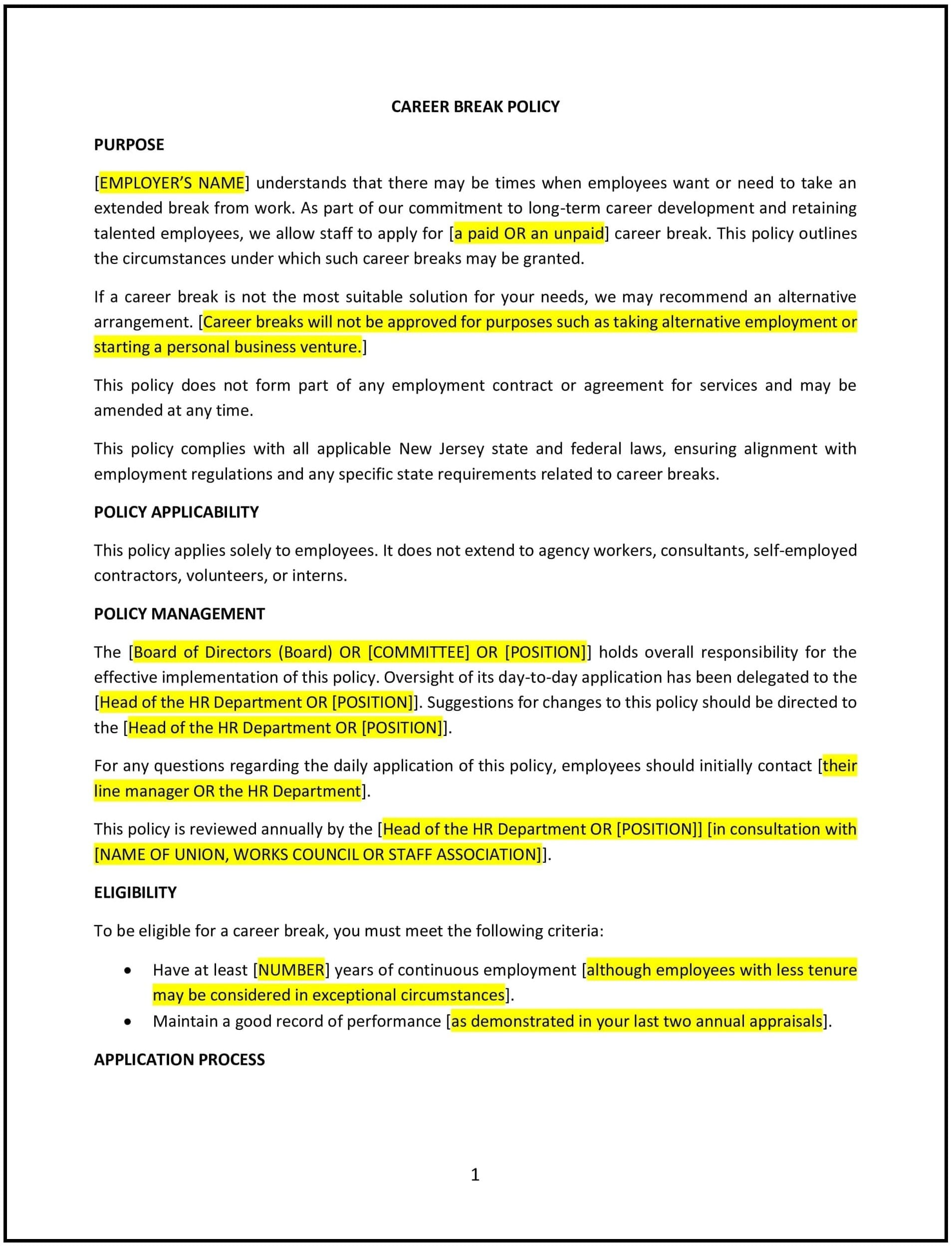Got contracts to review? While you're here for policies, let Cobrief make contract review effortless—start your free review now.

Customize this template for free
Career break (New Jersey)
A career break policy helps New Jersey businesses provide employees with an opportunity to take an extended leave from work for personal or professional development while maintaining a potential path for re-employment. This policy outlines eligibility criteria, the process for requesting a career break, and conditions for returning to work. It supports employees seeking time off for personal commitments, travel, education, or caregiving responsibilities while ensuring business continuity.
By adopting this policy, businesses in New Jersey can promote flexibility, retain valuable employees, and create a positive workplace culture.
How to use this career break policy (New Jersey)
- Define career break eligibility: Specify which employees qualify for a career break, including minimum tenure requirements and any limitations on roles eligible for extended leave.
- Set the maximum duration: Outline the permitted length of a career break, such as a period ranging from several months to a few years, depending on business needs and industry standards.
- Establish the request process: Detail how employees should submit a request for a career break, including required notice periods and any necessary approvals from management.
- Address employment status during the break: Clarify whether the employee remains on unpaid leave or if their contract is suspended and whether benefits such as health insurance continue during the break.
- Provide re-entry conditions: Explain how employees can return to work, whether they will be guaranteed a position, and if retraining or reskilling is required.
- Set expectations for maintaining contact: Define whether employees must check in with the company during their break and how they should update their employer about their return plans.
- Outline conditions for extending or ending the break early: Specify if employees can request an extension and how the company will handle early returns.
- Review and update: Regularly assess the policy to ensure it aligns with business needs and New Jersey employment regulations.
Benefits of using this career break policy (New Jersey)
This policy provides several benefits for New Jersey businesses:
- Enhances employee retention: Allows employees to take time off without resigning, making it easier for businesses to retain experienced talent.
- Promotes work-life balance: Supports employees who need extended leave for personal, educational, or caregiving reasons.
- Reduces recruitment costs: Offering career breaks can reduce turnover and lower hiring and training expenses for replacement staff.
- Encourages personal and professional growth: Employees who take career breaks for further education or skill development may return with enhanced capabilities.
- Supports workforce planning: Provides a structured approach to managing extended leaves while ensuring operational continuity.
Tips for using this career break policy (New Jersey)
- Communicate the policy clearly: Ensure employees understand the eligibility criteria, request process, and conditions for returning to work.
- Manage workforce planning: Plan ahead for temporary replacements or workload adjustments to accommodate career breaks.
- Provide guidance on re-entry: Offer refresher training or onboarding support for employees returning after an extended absence.
- Encourage open discussions: Allow employees to discuss career break plans with HR or management to ensure mutual understanding.
- Review the policy periodically: Update the policy based on business needs, employee feedback, and New Jersey employment regulations.